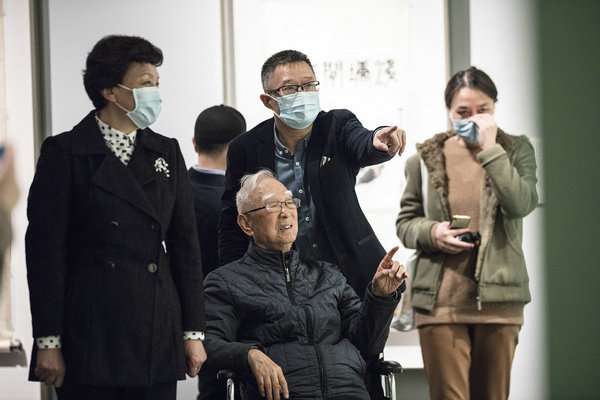

Du says Qu's donation features more than 30 figures in fine art, literature and history, many of whom actually made the works as a gift to Qu. He adds that these artworks represent several influential styles in modern Chinese art and include the painting schools of Beijing, Tianjin, Shanghai, Jinling, as well as of Lingnan (Guangdong province) and Chang'an (Xi'an).
Du says such a collection reflects "the scope and depth of Qu's vision in art as well as his wide acquaintance".
The exhibition title is derived from Liji, or the Book of Rites, a collection of classical texts of Confucian literature compiled during the Western Han Dynasty (206 BC-AD 24). The line originally compares the sweet sound of singing to the delicate feel of a string of beads.
"At this exhibition, the title means the art from Qu's donation is as precious as splendid beads," Du says. "And also, Qu is a man with a mind as pure and beautiful as that of beads."
Zhang Yuting, a student from the School of Environment, says her favorite work at the exhibition is Wild Geese in Reeds, a vivid ink painting by Lin Fengmian. She says the landscape presents a scene of dynamic vitality, showing the extensive beauty of nature that does not need many words to explain.
Qu says he used to worry about the safety of the collection which he had kept for decades, and he feels thankful that Tsinghua will take over his "burden".
"A top university needs a first-class museum, and a first-class museum needs a quality collection and a good curatorial team," Qu says. "Achieving that goal requires many hands to lend help. All I can do is to make a small effort."